From 10-minute doorstep deliveries to next-day express shipping, we live in a world that runs on instant gratification. And customer expectations are only growing by the day – even when it comes to customer support.
Today’s customers demand quick resolutions, personalized interactions and the ability to seek support anytime, anywhere. That’s why businesses can be seen shifting from relying on live agents in customer support to leveraging real-time AI assistance.
Whether you’re a B2C company managing a high volume of individual inquiries or a B2B organization that needs to tackle complex client issues, this post explores the role of AI in customer support.
Table of Contents
What is real-time AI assistance in customer support?
Real-time AI assistance in customer support refers to using artificial intelligence to provide instant, automated responses and solutions to customer inquiries across multiple channels.
It helps businesses deliver fast, accurate, and personalized support by analyzing customer data and resolving issues in real-time. This often includes using chatbots, voice assistants or making use of AI-powered helpdesks.

How is real-time AI assistance changing customer support?
Here are some ways in which we see companies leveraging AI in customer support with Auralis:
1. Instant responses to customer queries
Traditional customer support teams typically struggle to tackle customer queries during peak hours. This results in a long que to get responses and sometimes even missed opportunities to engage customers. AI-powered customer support tools can help automate frequently asked questions and assigning of queries/ tickets to the best agents, streamlining the process as well as their workload.
For example, H&M uses AI chatbots in customer support across channels to handle queries such as product details, order status, and return requests. This lets their live agents free up their time for complex queries.
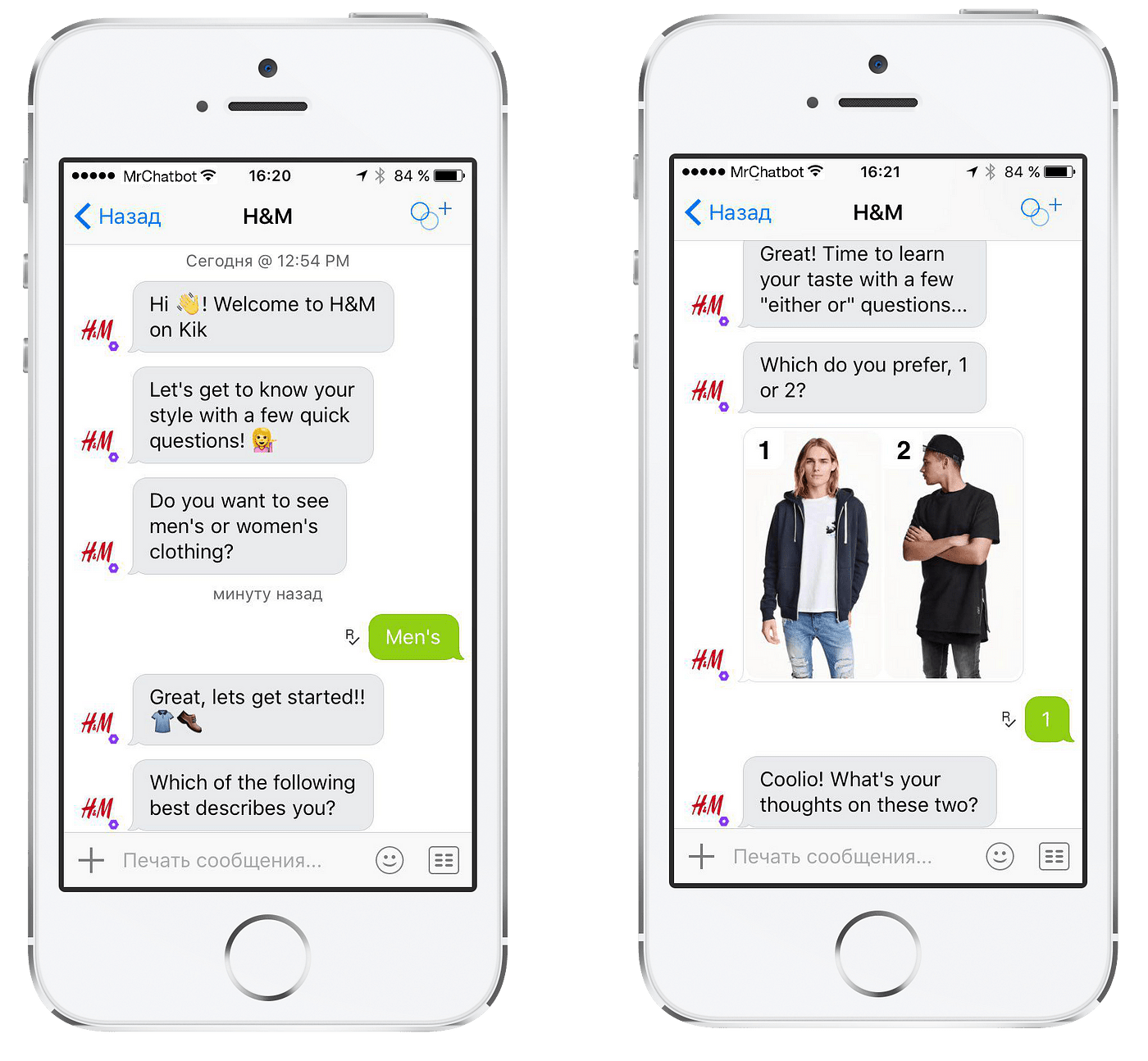
2. Improved accuracy of responses
Real-time AI assistance solutions are not just fast at responding to queries – they’re also precise. They have the ability to pull in information from the company knowledgebase and other assets to offer an accurate response to the customers.
For example, Zendesk uses real-time AI assistance in customer support. The solution helps them analyze customer data and identify the best responses to queries. This helps human agents save time for queries that require more nuanced resolutions.
Solutions like Auralis AI help you achieve this with easy training:

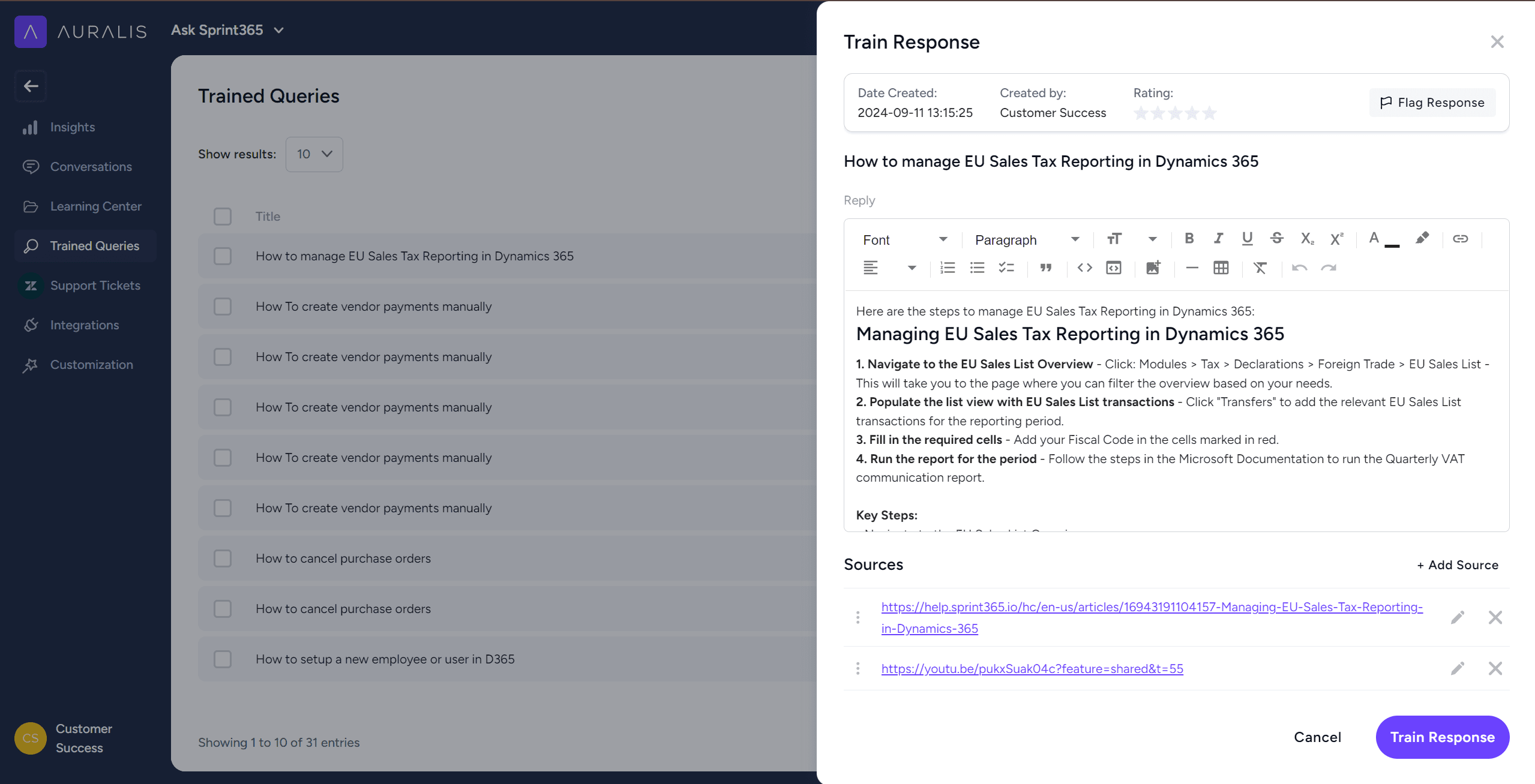
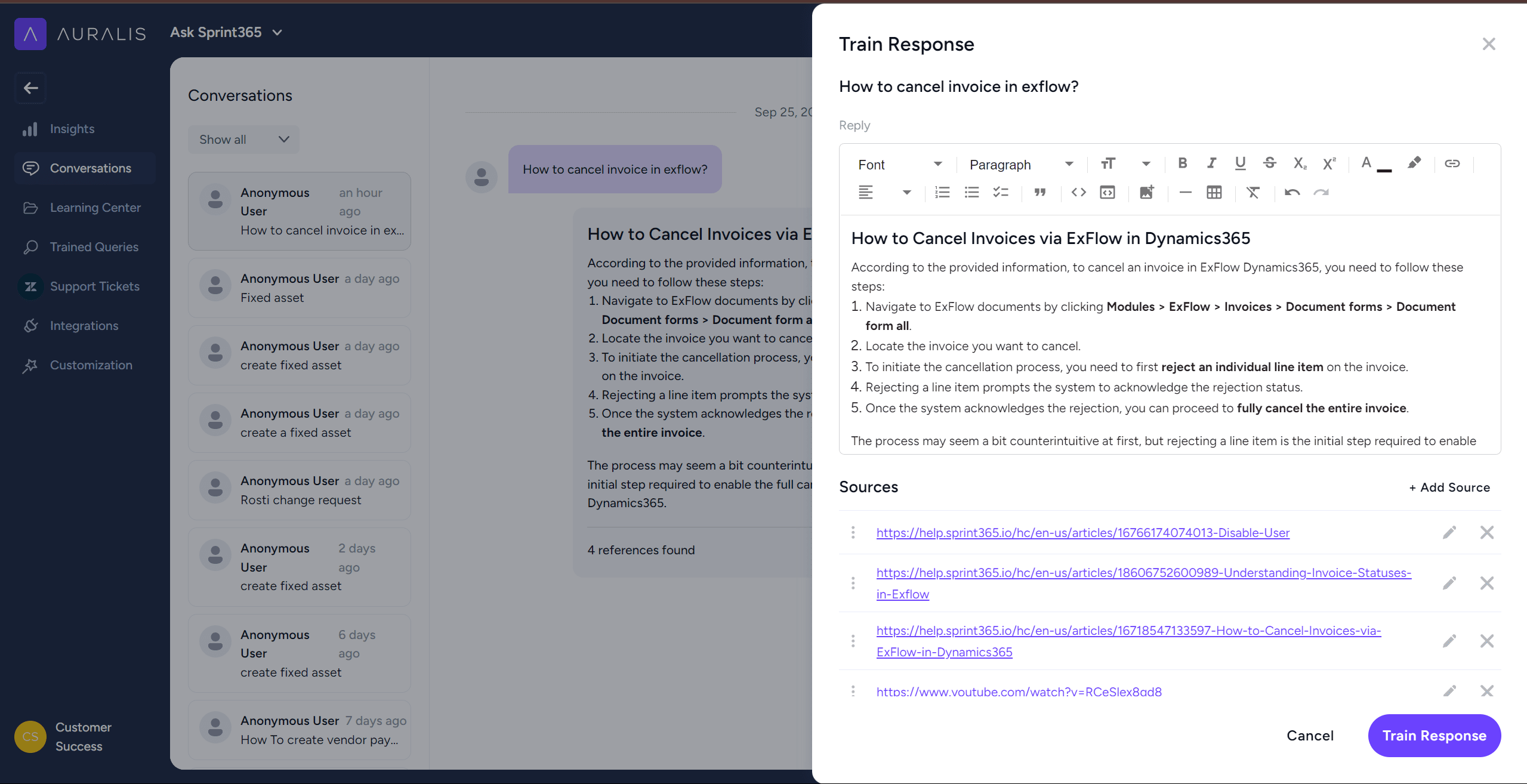
3. Seamless omnichannel customer support
Whether it’s through the website, mobile app, social media, or any of the messaging platforms, customers expect a seamless support experience. Real-time AI assistance can help manage these touchpoints simultaneously, ensuring consistent experiences across channels, and driving in higher engagement.
For example, KLM Royal Dutch Airlines uses an AI chatbot across social platforms to provide responses for queries like flight statuses, bookings, travel updates, and more.

4. Personalization at scale
Personalizing responses for each customer can be challenging – especially if you have set up multiple touchpoints. AI helps reduce the redundancy of repetitive conversations by analyzing customer data in real-time. This helps respond to queries based on past behaviors, engagement rate and other conversational parameters to make them more relevant.
For example, Netflix’s customer support too uses AI just like their personalized recommendations. Their system is able to analyze user behavior and resolve potential issues more proactively by offering personalized troubleshooting. It also helps them gather insights on how customers feel about their support services.
Real-world applications of real-time AI assistance in customer support
While the use cases of AI in customer support are growing by the day, here are some key applications we are noticing:
- eCommerce – AI chatbots are being used to instantly provide order tracking information, process refund/ return requests, and offer personalized product recommendations based on individual preferences.
- Financial services/ BFSI – Banks and fintech companies can be seen using real-time AI assistance to onboard new clients, offer financial advice and even set up fraud detection.
- Healthcare – AI customer support agents are being used to streamline patient inquiries, appointment booking, and post-care follow-ups.
- Travel and tourism – AI chatbots are being used to generate leads, send recommendations, gather customer information, and even make bookings.
- Telecommunications – AI assistants are now helping customers troubleshoot connectivity issues or schedule technician visits.
How to integrate real-time AI assistance into customer support?
To make the most of AI assistants in customer support, here’s how to strategically approach your strategy:
1. Identify key use cases
Audit your current customer support processes to identify gaps and weaknesses. Then determine the use cases that can best plug the problems and opportunities. This could include addressing frequently asked questions, resolving simple technical issues, linking customers to existing resources, managing routine transactions like returns and refunds, and similar.
2. Choose the right AI tool
There are several AI solutions for customer support. Look for one that easily integrates with your existing help desk software. For example, Auralis AI integrates with solutions like Freshdesk, Intercom, Help Scout, Gorgias, Zendesk, and others. The goal should be to sync with multi-format data sources to address queries more accurately.
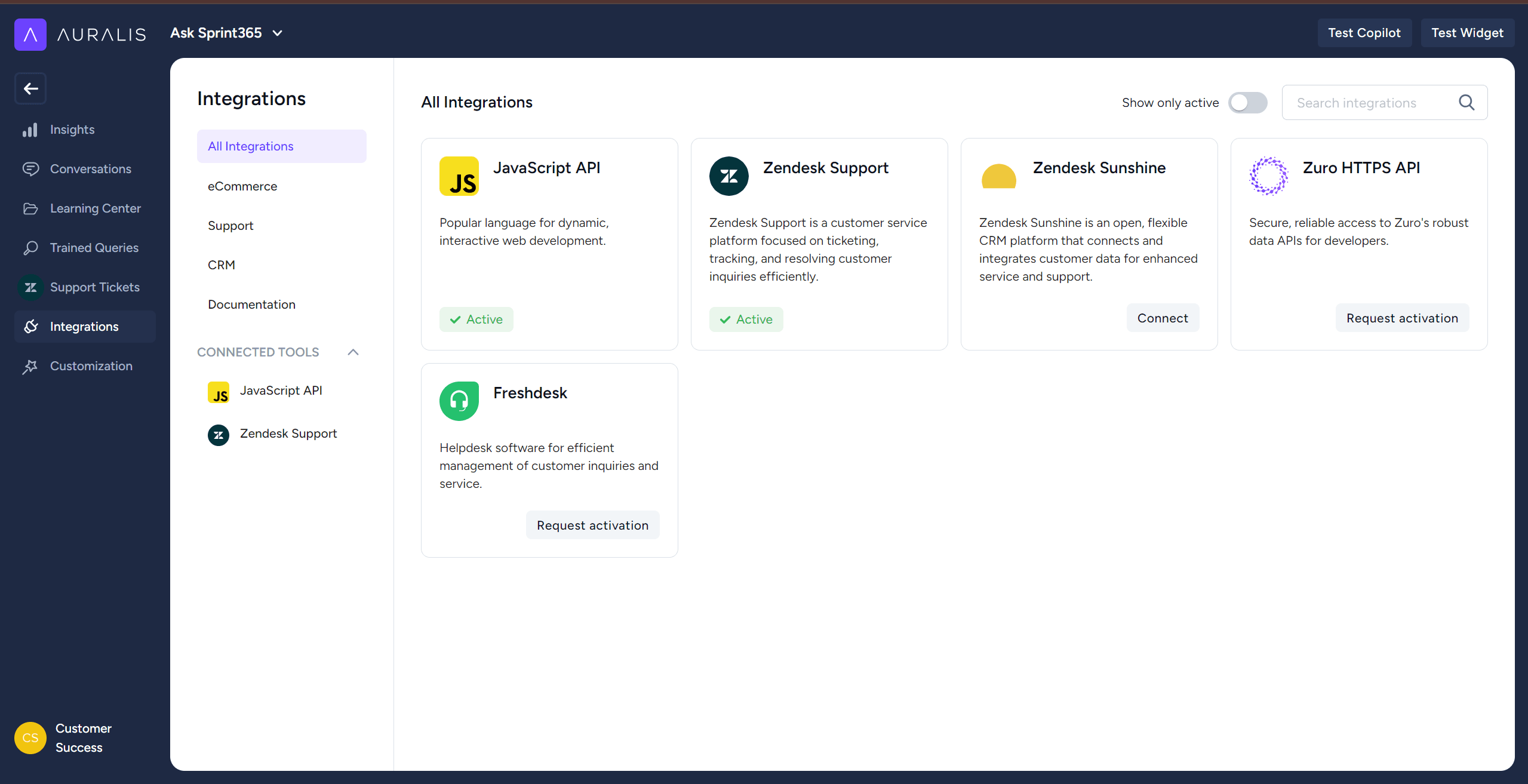
Also, choose a solution that is able to ingest and use all your existing content – irrespective of the formats. For example, whether your information resides on the website, Google Drive, Microsoft Suite, YouTube, Notion or other platforms, Auralis AI ensures real-time sync to keep information up-to-date.
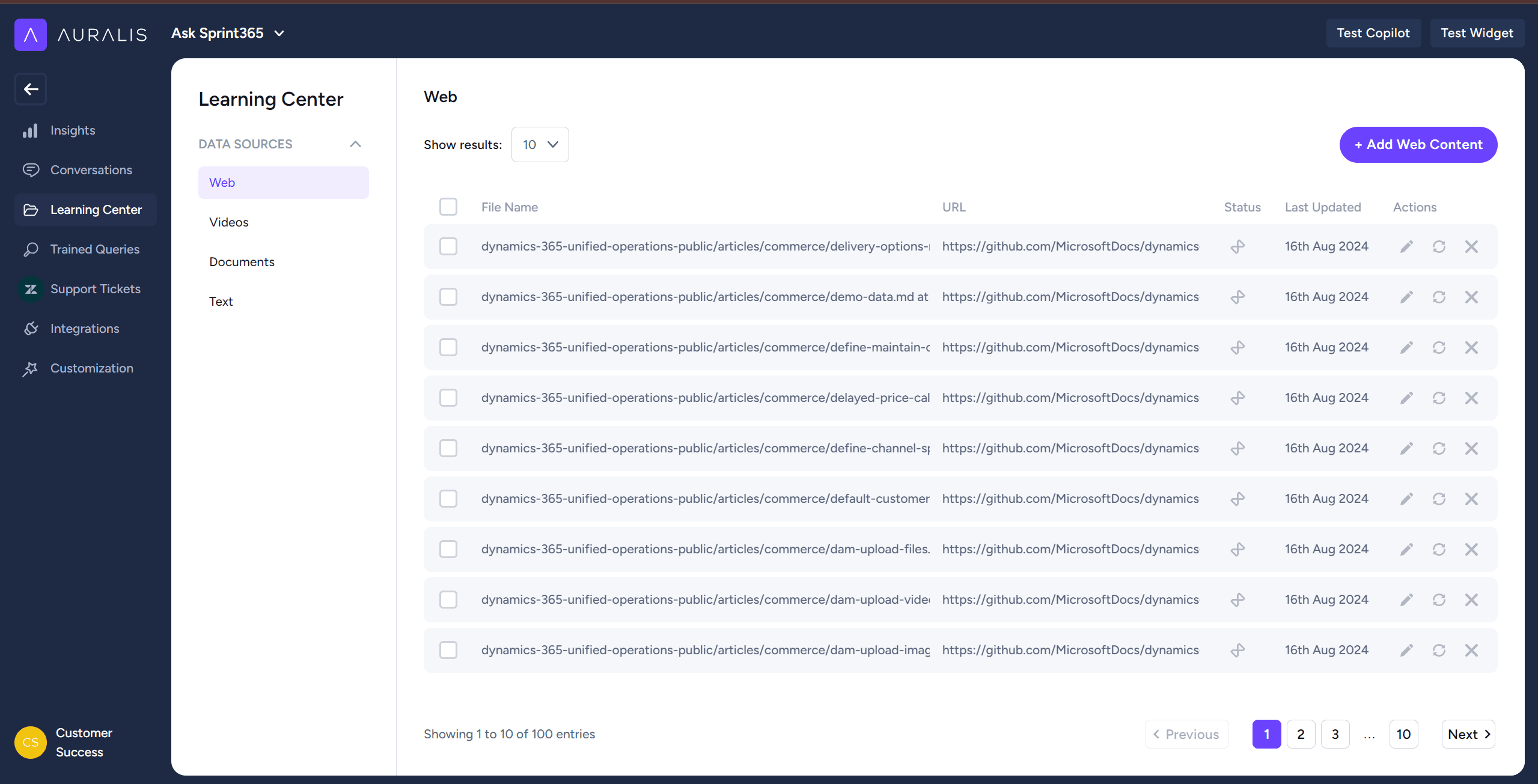

3. Ensure human oversight
While real-time AI assistance in customer support can help automate almost 70% of queries, ensures there is always human oversight. Set up a process for live agent hand-off when complex or sensitive issues arise during the conversation.
4. Monitor and convert queries to insights
After implementation, continually monitor how AI assistants are improving the overall customer support function. Track key metrics such as response times, resolution rates, and customer satisfaction scores. If you’re using a solution like Auralis AI, you can also summarize all queries into actionable insights instantly to prepare for the future better.

Conclusion
Real-time AI assistance is no longer a futuristic concept.
Customer support solutions like Auralis AI are helping companies integrate technology into their processes to make them more efficient and effective. From training new hires to managing peak time customer queries, Auralis AI helps set up real-time assistance and handle all conversations with ease – while ensuring each customer feels heard and helped.
Want to know more about real-time AI assistance for customer support? Book a demo of Auralis AI today.





